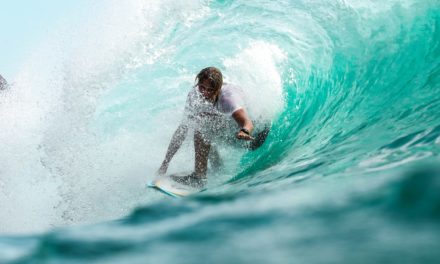“In this world nothing can be said to be certain, except death and taxes.” The wise words of Benjamin Franklin are as resonant today as they were in 1789. No one knows what our lives will bring, that’s why it’s important to have a solid financial plan to create, protect and grow your wealth.
TALIA
Talia has just turned 65 and is a secondary school teacher. She is currently living in Auckland and still has a small home loan. Talia has 4 adult children and 3 grandchildren.
Talia’s financial situation is a common one. She is asset rich but cash poor. Thanks to the recent property boom in Auck-land, Talia’s property is now worth $1,100,000. But because she still has a mortgage of $80,000 and the cost of living is high, she’s had to keep working.
Talia’s husband died of cancer eight years ago. Fortunately, his life insurance policy cleared most of their home loan debt on his passing. But with no income protection for the last nine months of his life, they had to survive on Talia’s wage alone.
Now Talia’s sitting on a property worth over a million dollars, but has very little cash flow. She also has considerable credit card debt and several hire purchases. It’s not where she wants to be. So what’s the plan?
Now that Talia’s 65 she will start earning NZ Super of $769.52 each fortnight after tax. This will give her extra cash flow to help reduce her high interest debt. She can also look towards downsizing her home and retiring completely.
Her son and grandchildren, whom she’s very close to, are in New Plymouth. If Talia sells her house while the market is strong, the equity will provide her with a comfortable retire-ment close to her family, with a free hold house and invest-ments topping up her NZ Super.
Top tip: Sometimes a dramatic downsize may be needed to reach retirement goals.
JEFF & NICKI
Jeff & Nicki are both in their late 40’s and are in the process of getting divorced. Jeff runs a family building company with his father and 2 brothers in Nelson. They have 2 teenage children.
Jeff and Nicki are doing it tough. In order to finalise their divorce they need to separate their finances. Thankfully their relationship is still amicable and they both want to do what is best for their children.
The couple are fortunate that they own their family home as well as a rental property that tenants have recently vacated. Jeff is now living in the rental property while Nicki has stayed in the family home. The children live alternating weeks with each parent.
To sort their finances, they need to meet with their respective solicitors. They’ll need to set up separate bank accounts and get all their assets valued, including their KiwiSaver, family home, rental property and business shareholding. They need to decide who is paying for what expenses and make an ar-rangement for child support if required. As they have to adjust to living on reduced incomes, they’ll need to revaluate their budgets and living costs.
There is much still up in the air as they could sell their proper-ties and downsize but this depends on what happens with their business. Jeff might buy Nicki out of the business, and Nicki may buy
Jeff out of the home. Once the valuations are done their solicitors can work out a settlement.
Top tip: Divorce is difficult. Don’t make it harder. Get the finances sorted properly and professionally to ensure everyone is cared for and looked after, especially any dependent children.
BEN & KEIRA
Ben & Keira are both in their late 30’s and have just moved back to NZ after living in the UK for the last 12 years. They have 3 children and have moved to the Wairarapa to take over the family sheep farm from Ben’s parents.
Ben and Keira have been back in New Zealand for 2 months. They both had successful careers overseas and managed to build up substantial equity in their London property and savings. From its sale, they have over $800,000 NZD.
Due to the current low exchange rate, they’ve sensibly chosen to leave most of their funds in the UK. When the time is right, they will use a dedicated money transfer company with zero fees and a competitive exchange rate, typically 2%-3% less than their bank.
While their move to the Wairarapa has resulted in a substantial drop in income, their cost of living has also significantly decreased. Ben and Keira need to sit down together and establish what they need to spend money on and create a new budget. Many personal living costs like accommodation, power, phone and petrol are now covered by the farm, and they have enough cash to set up a rainy day fund, which is around 3 months’ income.
During the next few months, Ben and Keira should focus on getting the children settled and establishing their combined goals, while learning to live on less income. If they stick to their new budget they’ll be able to afford to visit Keira’s family in the UK every two years as planned.
Top tip: Seek advice from an expert in foreign exchange whenever you have large sums of money to transfer internationally.
Thank you to Tim Fairbrother from RIVAL Wealth for providing this article.
This information is of a general nature and is not intended to be personalised financial advice.









